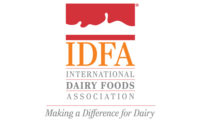Keys to future growth: promotion, innovation and trade
Healthy growth in the dairy industry requires industrywide cooperation, a laser-like focus and relentless advocacy on multiple fronts.

When George S. Patton was asked what his options were in going into a battle, he responded: “Lead, follow, or do nothing, and in most cases, doing nothing never ends well.”
We, the dairy industry, have not engaged on a broad scale as marketers of plant/alternative proteins increased their attacks, developed trade associations and aggressively launched marketing offenses — many with “anti-dairy” as a rally cry. We saw this initially in beverage and most recently strategically targeting the cheese, yogurt and butter categories.
They flanked us by using credible dairy science-/protein-based research to engage with consumers, creating perceptions that “all proteins” are equal related to health and nutrition. They have steadily gained unit volume growth by being innovative in product development and launching new products marketed in the dairy case. First it was soy, followed by almond, then cashew, pea, rice and hemp. The list continues to grow.
We largely stood by, letting this assault and erosion of our markets go unchallenged. Our lament, often heard at industry conferences, was: “Somebody needs to do something!”
Time to respond
The American Dairy Products Institute (ADPI) is a leading dairy industry trade association with a robust membership of domestic and international companies. ADPI is largely focused on dairy ingredients manufactured/marketed by our members, with a mission to increase worldwide usage. Any consumer gains made by plant/alternative proteins impact our members businesses negatively.
ADPI’s membership decided we could no longer sit by and watch this conflict and not respond and engage. We realized that no other currently active dairy-centric marketing campaigns address dairy proteins/ingredients specifically — a big void, as 35% of all dairy solids go into ingredients, many of which are dairy proteins.
All products have a right to be in the marketplace, including plant/alternative protein-based products, provided they are responsibly developed and offer a value proposition to consumers. This “right to be” needs to be backed by factual information and supported by accurate marketing claims related to efficacy, health and nutritional benefits. Consumers should have fact-based information, supported by research and clinical studies/trials, to make an informed decision about their protein of choice.
Our view is that any research or application studies supporting marketing claims should be clearly attributable to the specific protein involved. All proteins are not equal. There are many instances where consumers are being misled or, at a minimum, confused by label context and marketing claims by some marketers (not all, to be fair) in an effort to leverage the benefits of protein (for which most research is specific to dairy, not the protein they are selling).
We have recently seen some responsible plant-based beverage marketers remove the word “milk” from their labels, replacing it with “beverage” — e.g., “almond beverage.” This practice is based on labeling rules and regulations and is the right thing to do.
All about positive messaging
ADPI established a task force consisting of members to action the Dairy Protein Messaging Initiative, which aims to proactively provide positive fact-based information about dairy proteins/ingredients. Key targets are women, millennials and “influencers” of consumer purchasing. This pan-industry initiative is pre-competitive in nature and available to any and all dairy-centric organizations to support.
We are pleased with the support we are receiving from our members and the broader industry, but more is needed. We are currently in the research and messaging development stage. Stay tuned: The sleeping giant, DAIRY, has awakened and is engaging in the conflict!
Looking for a reprint of this article?
From high-res PDFs to custom plaques, order your copy today!






